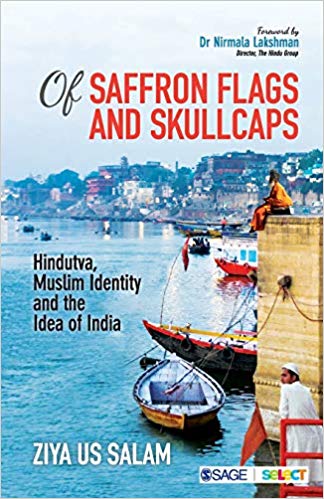Zia Us Salam’s book is largely about the process of ‘Othering’ of Muslims and growth of Hindutva ideology. Salam, a noted literary and social commentator and currently Associate Editor of Frontline, begins his book discussing the rise of Hindutva, in Part I, tracing its history and growth from the time of VD Savarkar and MS Golwalkar. Part II deals with the chilling questions surrounding Muslim identity and their ‘otherisation’ while making an effort to understand their religion. Part III is about the Idea of India, what it means to a common man and woman.
While discussing the many facets and contradictions of the ideology of Hindutva, Salam begins with Savarkar’s theory of pitrabhoomi (birth place) and punyabhoomi (sacred place), which claims Muslims to be immigrants and asks, ‘didn’t the Aryans succeed the Indus Valley civilization? If, so, weren’t they immigrants too? Isn’t everybody an immigrant here? All that matters is how far back you go in time’ (p. 12). The author highlights Hindutva’s patriarchal and Brahminical stance in respect of women and Dalits. While discussing RSS’s relation with women, Salam mentions the Rashtra Sevika Samiti, a women’s wing of the RSS, which came into being some 11 years after the RSS was founded but still continues to be a token body. A short description of the book Karmayogi, penned in 2007, by Narendra Modi is an interesting call by Salam to understand the RSS’s approach towards the Dalits.
The book, no longer in circulation, ‘defended the vocation and questioned the claims of those who felt the Dalits worked as scavengers due to the absence of other avenues for earning a livelihood. He [Modi] even hinted at a spiritual purpose behind it all’ (p. 27).

